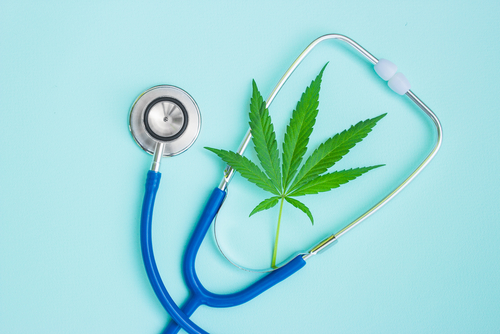Medicinal Cannabinoids Not Effective for Mental Disorders, Small Relief on MS Anxiety, Analysis Suggests
Written by |

A joint analysis of 83 studies, involving 3,000 people, concluded that there is “scarce evidence” to say that the use of medicinal cannabinoids — chemical compounds in the cannabis plant — is able to improve mental health conditions.
However, the use of pharmaceutical tetrahydrocannabinol (THC) may lead to a small relief of anxiety in people with multiple sclerosis (MS), the analysis found.
The researchers warned that the evidence available for these effects is still low, and said more well-controlled studies are needed to be sure of cannabinoids’ effectiveness and risks.
The study, “Cannabinoids for the treatment of mental disorders and symptoms of mental disorders: a systematic review and meta-analysis,” was published in the journal The Lancet Psychiatry.
Therapeutic cannabinoids include medicinal cannabis and the lab-made derivatives THC and cannabidiol (CBD) — two of the major compounds found in the cannabis plant.
CBD is a non-psychoactive component, believed to have neuroprotective properties, while THC is the main psychoactive constituent of the plant.
In many countries, these compounds are being investigated and made available for medicinal purposes, including for the treatment of mental disorders. However, there is evidence that non-medicinal forms of cannabis pose threats to mental health, with its use being associated with depression, anxiety, and psychosis.
“In countries where medicinal cannabinoids are already legal, doctors and patients must be aware of the limitations of existing evidence and the risks of cannabinoids. These must be weighed when considering use to treat symptoms of common mental health disorders. Those who decide to proceed should be carefully monitored for positive and negative mental health effects of using medicinal cannabinoids,” Louisa Degenhardt, PhD, of the National Drug and Alcohol Research Centre (NDARC) at UNSW Sydney, Australia, and lead author of the study, said in a press release.
“There is a notable absence of high-quality evidence to properly assess the effectiveness and safety of medicinal cannabinoids compared with placebo, and until evidence from randomised controlled trials is available, clinical guidelines cannot be drawn up around their use in mental health disorders,” Degenhardt added.
To learn more, the team examined all available studies looking at the effects of medicinal cannabinoids use on relieving symptoms, or leading to remission, of six mental health disorders in adults. These disorders are depression, anxiety, attention-deficit hyperactivity disorder (ADHD), Tourette syndrome, post-traumatic stress disorder (PTSD), and psychosis.
They analyzed 83 studies, published between 1980 and 2018, 40 of which were randomized controlled trials. The remaining studies were open-label trials in which participants were taking cannabinoids.
Results showed that pharmaceutical THC — with or without CBD — worsened symptoms of psychosis, and did not significantly improve other mental health disorders. It also increased the number of people who felt side effects (10 studies; 1,495 people), and those who stopped treatment due to these effects (11 studies; 1,621 people) compared with placebo across all mental health disorders analyzed.
The findings, however, revealed that pharmaceutical forms of THC — again, with or without CBD — were able to improve anxiety symptoms in people who had other medical conditions, such as MS and chronic pain not related to cancer. However, the evidence for this positive effect “was very low,” the researchers noted. They also said it was not clear whether this effect was due to improvements in the patients’ primary medical condition.
“Clinicians and consumers need to be aware of the low quality and quantity of evidence for the effectiveness of medicinal cannabinoids in treating mental health disorders, and the potential risk of adverse events. Given the likely interest but scant evidence to guide patient and clinician decisions around cannabinoids for mental health, there is an urgent need for randomised controlled trials to inform whether there are benefits of cannabinoids for these indications,” Degenhardt said.
The team noted that, while this was the largest study conducted in the field, its conclusions are limited by the small amount of available data, small study sizes, and the variability in findings between small studies. In addition, most studies were based on pharmaceutical cannabinoids, rather than medicinal cannabis (plant products), which is the product most often used for medicinal purposes in the U.S.
“The process of drug development in modern medicine is to first demonstrate efficacy and safety in clinical trials before using the drug clinically,” Deepak Cyril D’Souza, professor at Yale University School of Medicine, said in a related Lancet comment.
“With cannabinoids, it seems that the cart (use) is before the horse (evidence). For cannabinoids to be used in the treatment of psychiatric disorders they should be tested in RCTs [randomized controlled trials], and subjected to the same regulatory approval process as other prescription medications,” he said.


